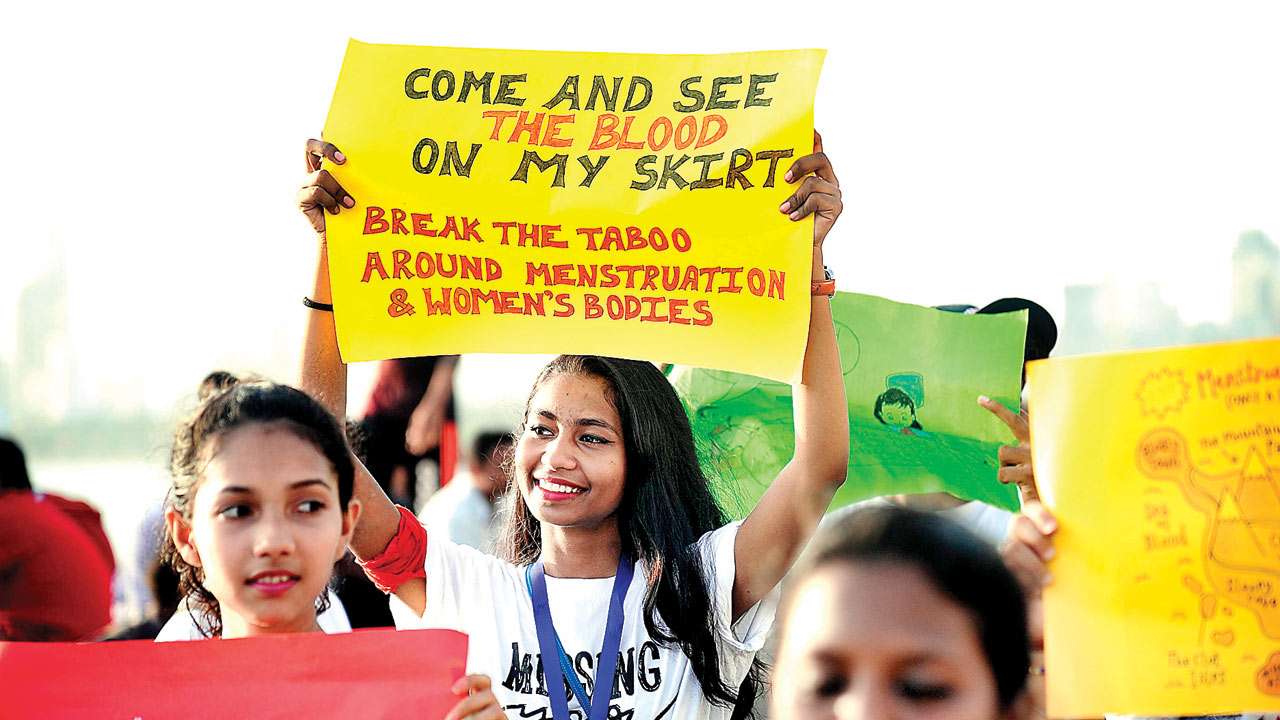
One aspect of women empowerment is to explicitly talk about and manage traits exclusive to women and their physiology. Menstrual hygiene is one such aspect. It seems to be a familiar topic but is actually one of the most mismanaged phenomena in India.
To have hygienic menstruation is basic to the dignity and well-being of women. It is associated with gender equality as well as basic human rights. Due to poor hygiene awareness and facilities, girls avoid going to schools, meetings, or to other important events of their lives. This is one of the reasons that they are supposed to be less effective employees when compared to their counterparts. In many cases, girls miss important competitions, examinations, and other appointments only because they are menstruating. Moreover, there are times when cultural beliefs bear heavy on the female psychology. There is a common cultural belief in India that during menstruation, females are impure and dirty. They are not allowed to touch anything in the kitchen and are not allowed to enter temple premises. Another common belief is that going past a sanitary napkin, used and thrown by others, can cause serious harm. These myths and misconceptions can actually make women feel inferior because of their womanhood.
Menstruation is a normal process and needs to be explained as well as understood scientifically. Other than misconceptions, there are many problems faced by Indian girls at the time of menstruation: Poor water and sanitation facilities in schools, offices, and public places, lack of sufficient knowledge and awareness among girls regarding menstruation, lack of sanitary pads, lack of disposal facilities, and humiliation from leakage or body odour.
Generally, mothers hesitate talking to their adolescent girls about menstruation before menarche no matter how educated they are. But, such education is extremely needed for a girl who is going to face menstruation. This can be done with the help of teachers and child councillors at school and in community as well. Myths and misconceptions can also be removed from the minds of parents as well as those of girls. There are many NGOs that have been actively involved in spreading awareness about menstrual hygiene through campaigning in rural areas, Counselling, and sending motivated educators door to door.
Now the government is tackling the problem of lack of toilets in schools head on, and we are witnessing a change in availability and habit pattern at the level of community. Still a long road to tread, but the signs are good. Each and every school need to have water, hygiene and sanitation at proper place.
India is also experiencing a movement towards cleanliness in the name of Swachh Bharat Abhiyan, in which proper waste disposal has been emphasised and dustbins are being placed at every possible nook and corner. Finally, girls are getting proper sanitary pad disposal facilities under their hands.Use of Sanitary pads has also been encouraged by Government through various steps. Swachh Bharat: Swachh Vidyalaya campaign that ensures facilities like soap, space for changing, water availability and disposal facilities in every school. In one other step, good quality sanitary pads are being provided to adolescent girls in rural areas by ASHAs. Under SABLA program, awareness is being spread by the government on health and hygiene of women.
All efforts that are dedicated to menstrual health form the basis of overall women health. Menstrual health has direct correlation with Maternal Mortality Rate as well as Infant Mortality Rate. At global level, we are trying to reduce MMR and IMR and greater menstrual hygiene can give India a good mileage in these areas. There are many governmental steps similar to these but success of these steps needs community support also. It is high time that these government steps should be supported by community participation. It is important to create awareness and persuade people to leave their misconceptions and uninformed beliefs.
Intensity of problem increases as physical barriers are much less in comparison to the mentality barriers in this realm. Moreover, it is easy to remove a physical barrier with proper resources and strategy but most of the time, it is not easy to dilute the age old misconceptions and habit patterns. This area needs the support of civil society organisations. The role of various NGOs is essential to root out what is wrong and inculcate healthy practices among females.
NGOs can help at grassroot level; they can connect with female of all strata and organise informational as well as interactive workshops. Providing toilets and absorbents are not enough, rather proper hygienic habit formation is complementary to such basic amenities. Many females in India think themselves to be impure during menstruation, they need to be convinced about their purity. Similarly, a scientific outlook needs to be prevailed about it among those who are actually dealing menstruation too heavily in their life.
We need a nationwide movement in respect of female hygiene; this will not only support health and well-being of women but also give them a more dignified life.
Author, CEO, Sum Dhrishti, an NGO